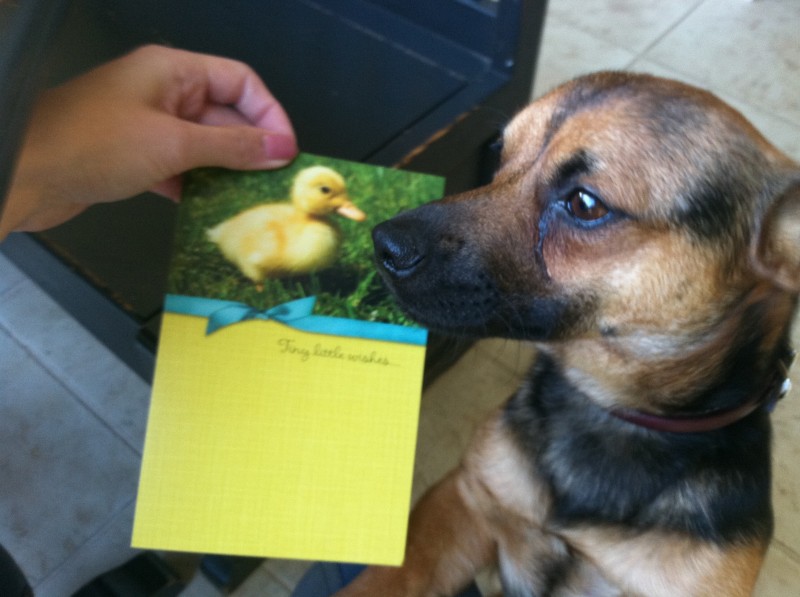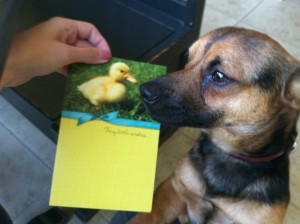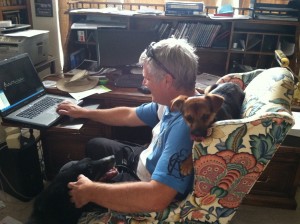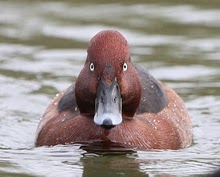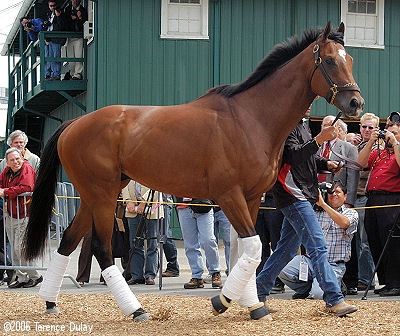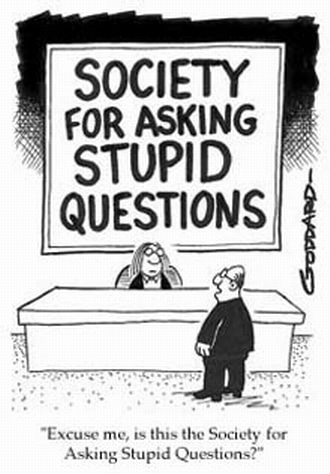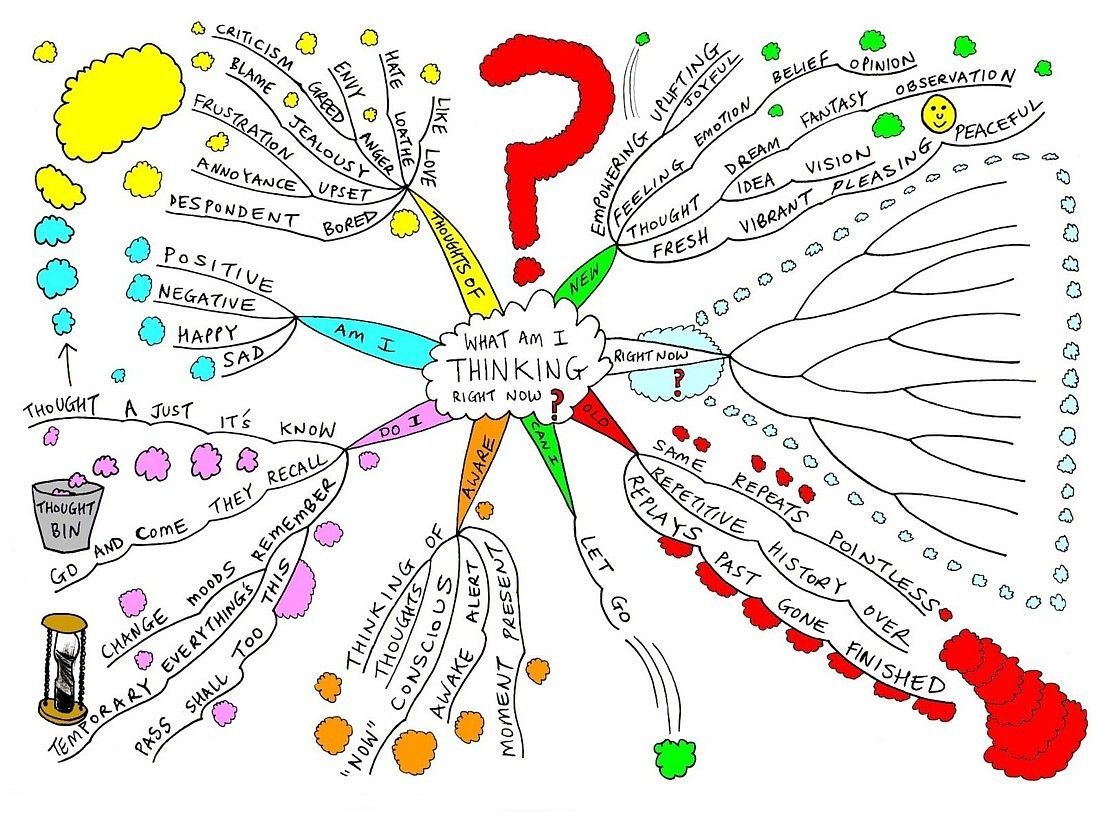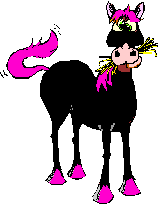I lost my Duck. Not a duck. The Duck. He came into my life (and the lives of a few other important people) around March of 2014. After having lost a little dog to a tragic accident at the start of the year, I was looking for another one to help fill whatever space in my heart is so much in need of being filled by loving an animal. And we found the little guy – Duck – down at the animal shelter (I’ve never been responsible for a purebred anything). It only took a couple of visits before he had a new home – two days before he would have been put to sleep by the shelter (I’d be lying if I said that didn’t have something to do with it). And right away, he began to work his way into my heart.
Duck was almost spectacularly clumsy, in a most endearing sort of way. Like the time when he jumped from the second stair at full speed, hitting the tile, and sliding into the wall. Smacked right into the baseboards with a distinct “thump,” then jumped right up and headed for the door, tail wagging, as if to say, “I meant to do that.” Or the time that he learned that glass is transparent, when, running to come inside, he was stopped by an invisible force field. Didn’t faze him a bit.
When I’d write, Duck liked to get up on my shoulders, on the back of the chair. He was really happy, and so was my heart. The heart ticks a little brighter when that spot is filled, doesn’t it?
It was just a couple of months – a couple of really short months, it turns out – when he came into the house and lost his breakfast. It seems like he might have been losing a little weight, so I had been trying to feed him more. But all of a sudden, he seemed a bit depressed, and a bit out of it. And frankly, it worried the heck out of me.
I learned all about dogs in veterinary school. But I haven’t stayed on top of the latest developments in canine medicine because I’ve been pretty busy with horses since I graduated. Knowing that, I wasn’t about to try to treat the Duck myself. I cared too much for him to do that. I wouldn’t have dreamed of trusting the Duck to what I remembered, or an internet search. As much as I’m confident in what I know, I’m even more sure about what I don’t know.
I had to consider how much Duck was worth, when thinking about what to do. I mean, his worth couldn’t be measured in terms of money, but his veterinary care could be. I had to decide to put some of his very-expensive emergency care on a credit card, because I didn’t have the $2000 deposit required by the emergency clinic (and I got some discounts, too). It was a hard decision.
Duck got worse, and fast. Confusingly so. He’d been so amazingly, heartwarmingly OK for a couple of months, and now, without an apparent reason, he was so bad. He lost awareness of where he was. He lost coordination. He lost his sight. All in a few days. All in spite of super aggressive treatment, and round-the-clock care, love, and attention.
And after a couple of days, I knew it was time to say good-bye, because no matter how much I wanted it not to be so, I knew that there was nothing else that could be done. I now know what the problem was – blood was bypassing his liver – even though I don’t understand why it took so long to show up. But at the time, I didn’t know – nobody knew. All I wanted was for him to be better.
And to be honest, I would have been willing to do almost anything to try to make him better, even though I knew there was really nothing that could be done. At the bottom of it all, that willingness to do and try anything is something that you have to be careful with, because there are people who will take advantage of that willingness.
I don’t want to be one of those people, and I don’t want it to happen to you. I know what it feels like to feel taken advantage of, too. I had to spend $250 on intravenous fluids for a little dog, when I know that the cost of the fluids that he needed was less than a dollar. I know what the charges were for, and many of them were superfluous. I resent that, even with my professional discount.
 Why am I telling you all this? It’s because I want you to be able to afford your horse. I want to help make it so that when you spend your money on frivolous things (Duck got a surprising number of toys, and who knew dogs liked peanut-flavored treats), that you know they’re frivolous things. I want to help you make informed decisions for your horse, and not simply do something because you think you have to, or because someone tells you/sells you that you should.
Why am I telling you all this? It’s because I want you to be able to afford your horse. I want to help make it so that when you spend your money on frivolous things (Duck got a surprising number of toys, and who knew dogs liked peanut-flavored treats), that you know they’re frivolous things. I want to help you make informed decisions for your horse, and not simply do something because you think you have to, or because someone tells you/sells you that you should.
Writing about Duck helps me deal with his loss, but it also reminds me that when I write something about how I think you might be wasting your time and money, or when I write about how you might not want to go down a certain therapeutic road when you’re trying to help your horse with this condition or that, it’s not because I’m threatened by someone making an incursion onto my business, and it’s not because I’m worried that someone knows more than I do (there are plenty of people that know more than I do, even though I take a good bit of my inconsiderable free time to study and try to learn more every day). I’m OK with those possibilities.
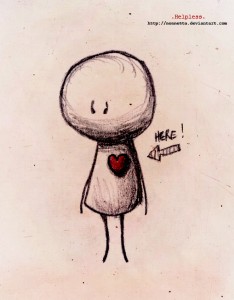 I write because I know what it’s like to be on your side, to feel helpless in the face of a medical problem. I know what it’s like to have a problem that you’d give anything, or do anything, to make go away. I know what it’s like to be worried about your animal. I know what it’s like to be willing to spend money on something – anything – just for the chance that the problem will be helped. I also know a lot about what people can really do for their horses, and about the limitations; I think it’s important to consider those, as well.
I write because I know what it’s like to be on your side, to feel helpless in the face of a medical problem. I know what it’s like to have a problem that you’d give anything, or do anything, to make go away. I know what it’s like to be worried about your animal. I know what it’s like to be willing to spend money on something – anything – just for the chance that the problem will be helped. I also know a lot about what people can really do for their horses, and about the limitations; I think it’s important to consider those, as well.
I’m writing because I hope you don’t ever have to feel the way that I do, having lost my Duck. I want to do everything that I can so that you can ride, and brush, and schnoozle (I don’t think it’s a word, but you probably have some idea what it means) for as long as you can. I want your horse to be in the best of health, until time or circumstance makes that an impossibility, and I don’t want you to feel like you have to break the bank to make it happen.
 So as I write, and receive comments from all directions, what stands out for me most is when people who disagree with me – for whatever reason – say things like, “Vets don’t know…” or “Vets are closed minded…” or “Vets are only in it for the money.” Those comments mostly make me sad (although sometimes, when I respond, people accuse me of being angry), and maybe a little frustrated. To me, such comments show a fundamental lack of understanding of what it’s like for most of us who have chosen to become a veterinarian, and to devote our lives to caring for animals (horses, for me), and to try so hard every day to do the right thing for horses AND their owners. And having tried so hard, sometimes, we then to get to feel like it’s all been for naught, in spite of having done all that you can do.
So as I write, and receive comments from all directions, what stands out for me most is when people who disagree with me – for whatever reason – say things like, “Vets don’t know…” or “Vets are closed minded…” or “Vets are only in it for the money.” Those comments mostly make me sad (although sometimes, when I respond, people accuse me of being angry), and maybe a little frustrated. To me, such comments show a fundamental lack of understanding of what it’s like for most of us who have chosen to become a veterinarian, and to devote our lives to caring for animals (horses, for me), and to try so hard every day to do the right thing for horses AND their owners. And having tried so hard, sometimes, we then to get to feel like it’s all been for naught, in spite of having done all that you can do.
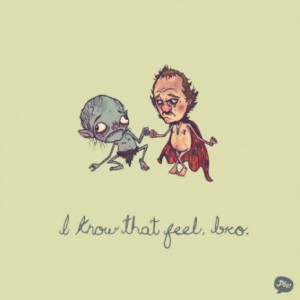 I think that people forget that I do know what it’s like to be on the other side of the veterinary-client-patient relationship, and that I haven’t always been happy with the outcome. I’ve been worried, and desperate about an animal, too. So when I write, I’m not trying to tell you what to do, but I do have a pretty good understanding of what your choices really are, because I’ve probably considered all of them.
I think that people forget that I do know what it’s like to be on the other side of the veterinary-client-patient relationship, and that I haven’t always been happy with the outcome. I’ve been worried, and desperate about an animal, too. So when I write, I’m not trying to tell you what to do, but I do have a pretty good understanding of what your choices really are, because I’ve probably considered all of them.
And I know where you’re coming from, too. I was just there. I lost my Duck, in spite of all I know, all I tried, all I spent, and all I wanted. And I hope that by knowing that – feeling that – I can help people with their horses, and especially when they feel the same way that I did.
I miss my Duck. Always will.

